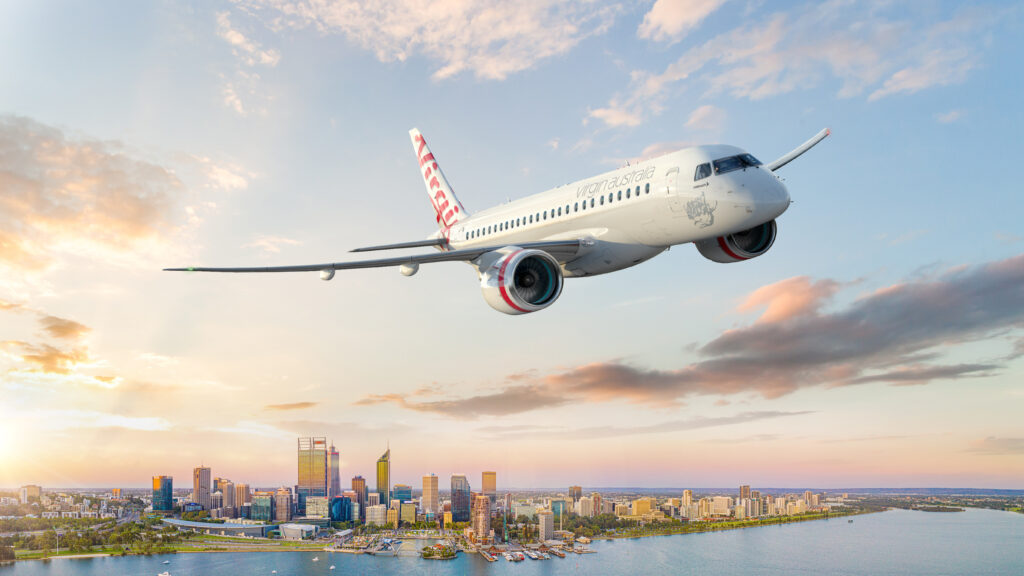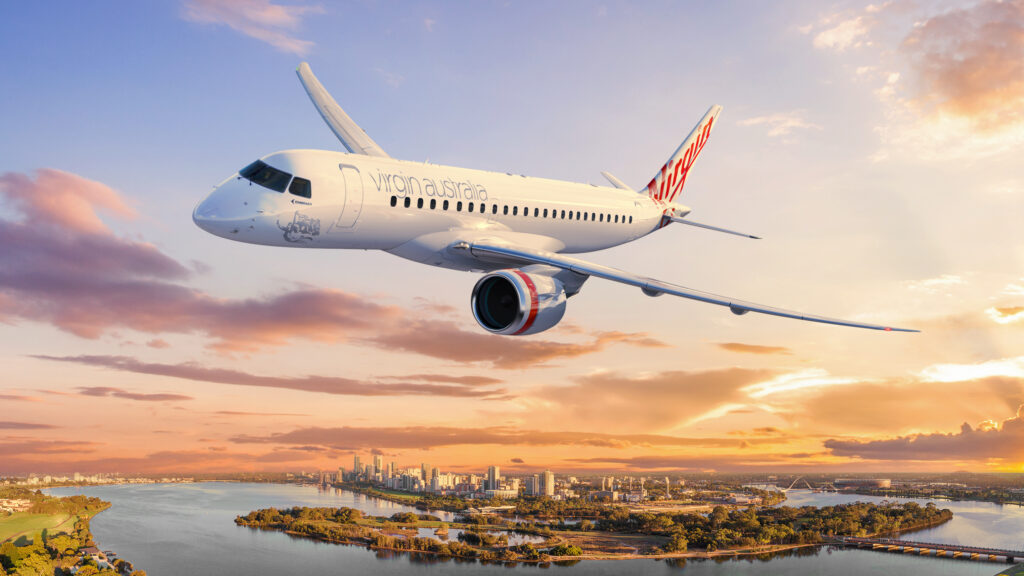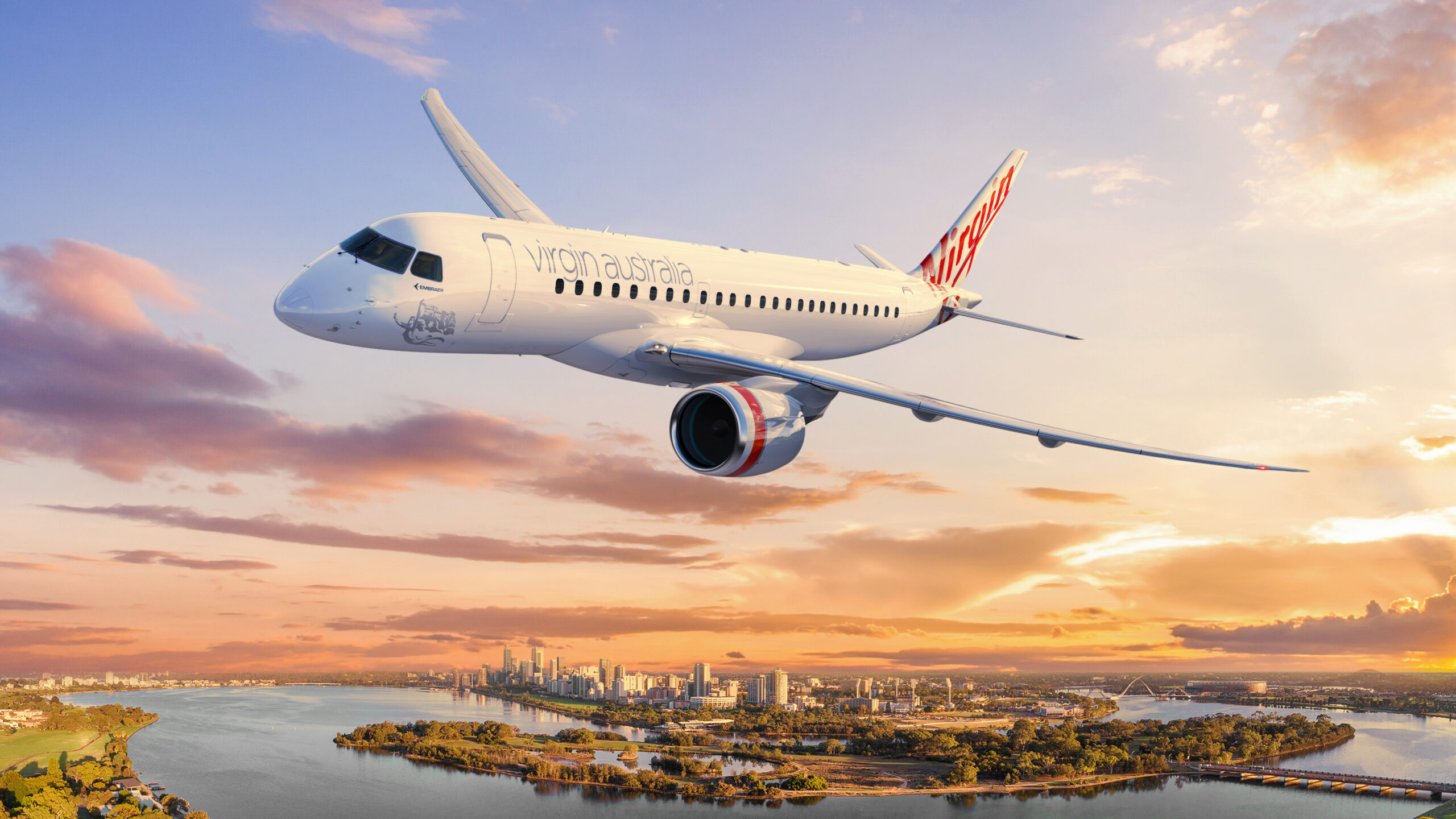Virgin Australia is taking a bold step in renewing its fleet, placing a firm order for eight Embraer E190-E2 small narrowbody aircraft. This move aligns with the airline’s commitment to efficiency, sustainability, and enhanced passenger experience as it transitions from its long-serving Fokker fleet. Deliveries are set to begin in the latter half of 2025, marking a significant milestone in the airline’s journey towards modernizing its operations.
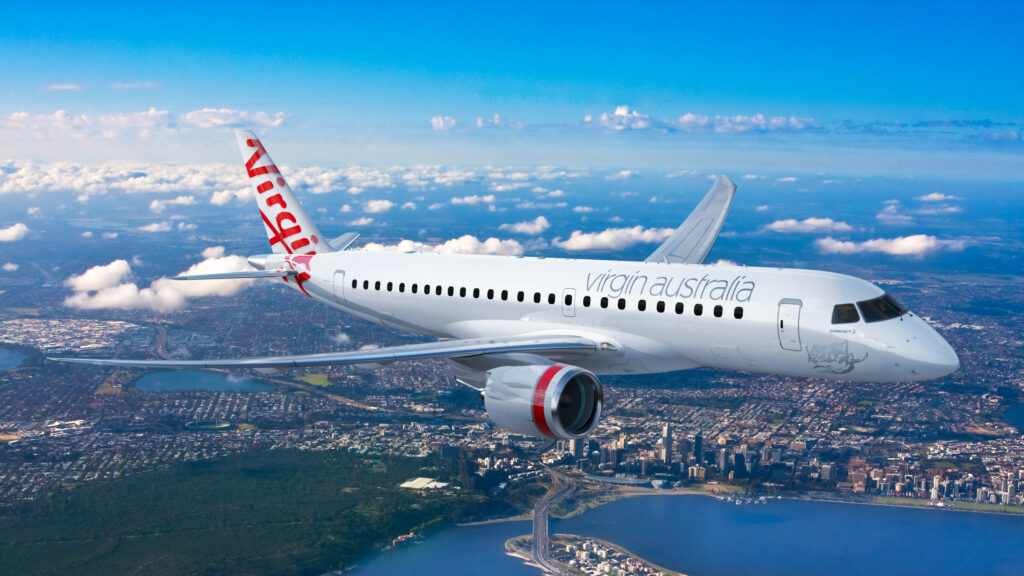
A Strategic Move in Western Australia
The announcement, made in Perth on August 13, 2024, was a highlight attended by key government figures, including the Deputy Premier of Western Australia, Rita Saffioti. The E190-E2 aircraft will be based in Perth and operated by Virgin Australia Regional Airlines (VARA), reinforcing the airline’s dedication to the Western Australian market. The E190-E2, powered by Pratt & Whitney’s PW1900G engines, boasts a flying range of around six hours, making it an ideal fit for the region’s unique travel demands.
Virgin Australia Group CEO, Jayne Hrdlicka, emphasized the significance of this acquisition, stating, “When the new E190-E2 enters service from October 2025, it will become the first new aircraft in the WA charter market this century. The E190-E2 is the most fuel-efficient aircraft in its segment and will reduce emissions by about 30% compared to the outgoing F100. These aircraft also feature significantly lower noise profiles and enhanced passenger comfort.”
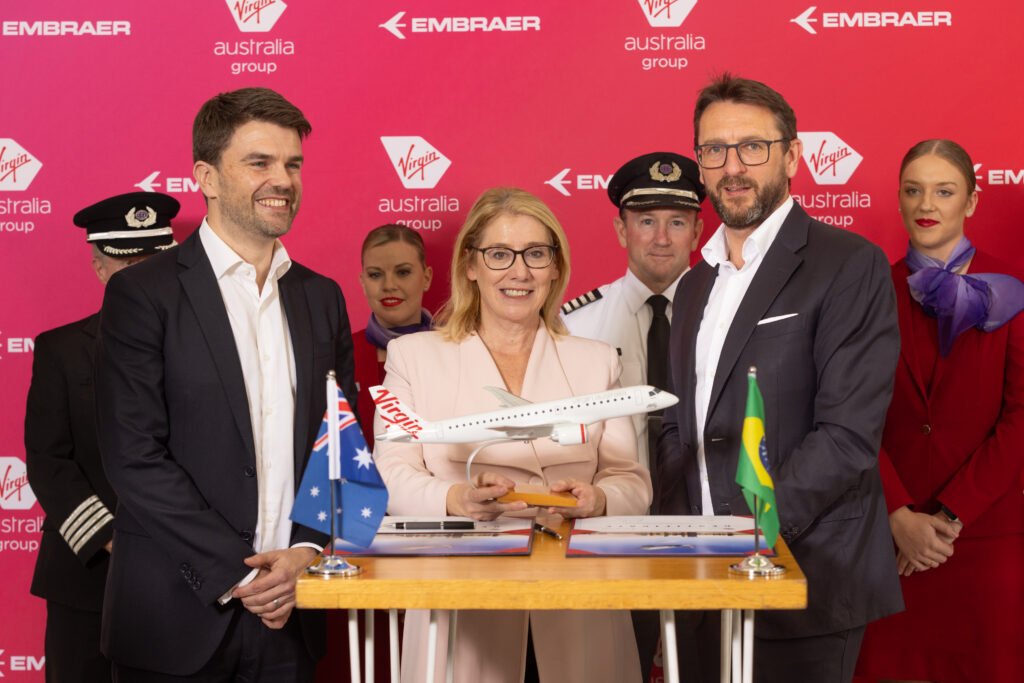
A Sustainable Future
The E190-E2 is not just a replacement; it represents a leap forward in sustainable aviation. Known as the world’s most fuel-efficient single-aisle aircraft, the E190-E2 will contribute to Virgin Australia’s sustainability goals by reducing carbon emissions and noise pollution. The aircraft’s enhanced aerodynamics, innovative wing design, and advanced technologies allow for significant improvements in fuel efficiency. Certified to fly with blends of up to 50% Sustainable Aviation Fuel (SAF), the E190-E2 has also proven its capability to operate with 100% SAF through test flights.
Martyn Holmes, Chief Commercial Officer of Embraer Commercial Aviation, praised the partnership, saying, “The E2 is a game changer. We are excited to welcome Virgin Australia to the Embraer family and look forward to seeing our best-in-class E2 – renowned for comfort, quietness, and low emissions – take the airline to even greater heights.”
Embraer’s Commitment to a Greener Tomorrow
Embraer’s collaboration with Virgin Australia aligns with its broader goal of achieving net zero emissions by 2050. The company aims to be carbon neutral by 2040 and plans to use 25% SAF in its operations by 2040, with a target of 100% renewable energy sources by 2030. With a strong presence in Australia since the introduction of the Bandeirante in 1978, Embraer has solidified its position in the region, with close to 50 aircraft currently in operation, making it one of the largest E-Jets fleets in the Asia-Pacific.
What do you think about this new acquisition?
Look how beautiful is the E2 with the Virgin Livery

